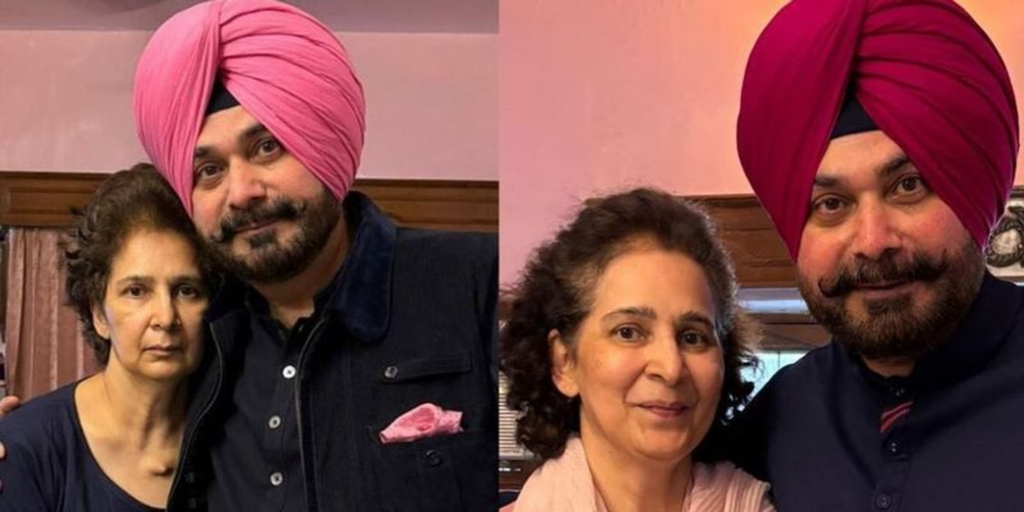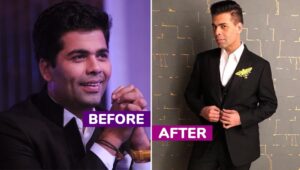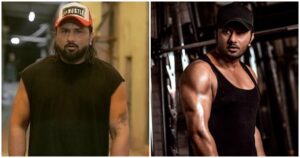Sidhu’s Controversial Diet Plan For Wife With Cancer: A Closer Look
Sidhu’s suggested diet plan for his wife battling cancer has sparked widespread criticism. Health experts and the public have questioned the scientific validity of his recommendations, calling them misleading and potentially harmful. This controversy highlights the importance of evidence-based approaches in addressing serious illnesses like cancer, where misinformation can have consequences.

Sidhu’s Controversial Diet Plan For Wife With Cancer: A Closer Look
Navjot Singh Sidhu’s Controversial Diet Statement Draws Criticism
It is not too much to expect public figures, especially celebrities, to make responsible statements—particularly when it pertains to matters as critical as human health. Former cricketer and politician Navjot Singh Sidhu recently found himself at the center of controversy after claiming that a specific diet helped his wife overcome advanced-stage breast cancer.
Sidhu’s statement, which attributed his wife’s recovery to dietary changes rather than established medical treatments, has drawn significant ire from practitioners of modern medicine. Experts argue that such claims, when made without scientific backing, can mislead vulnerable patients and their families, who may forego evidence-based treatments in favor of unproven methods.
While it is commendable that Sidhu sought to raise awareness about health and wellness, medical professionals stress the importance of framing dietary advice as complementary to, and not a replacement for, conventional cancer treatments like chemotherapy, radiation, or surgery. Cancer care is a highly specialized field, and treatment plans are tailored to individual needs, relying on years of rigorous scientific research.
The controversy has reignited discussions about the responsibilities of public figures in disseminating health-related information. Given their influence, celebrities can play a crucial role in spreading awareness. However, when advice is not grounded in credible evidence, it risks promoting misinformation, which could lead to dire consequences for patients seeking reliable guidance.
As this debate unfolds, experts emphasize the need for a balanced approach to health advocacy—one that champions holistic well-being while respecting the critical role of evidence-based medical interventions.
Story behind the Controversy:
Navjot Sidhu’s Ayurveda Diet Claim Sparks Cancer Recovery Debat
Navjot Singh Sidhu recently shared the remarkable news that his wife, Navjot Kaur Sidhu, is now clinically cancer-free. Diagnosed with stage 4 breast cancer, her journey has been one of resilience and determination. Alongside undergoing standard medical treatments, she adhered to a strict diet plan, which Sidhu claims played a significant role in her recovery.
While the specifics of her diet were not fully detailed, Sidhu credited an Ayurveda-inspired regimen, focusing on holistic wellness and nutrient-rich foods, as a complementary part of her treatment. This announcement sparked a mix of admiration and debate, with many commending her perseverance while others questioned the implications of emphasizing dietary habits alongside advanced-stage cancer treatment.
Medical professionals have urged caution, reminding the public that while a balanced diet can support overall health and immunity, it is not a substitute for evidence-based cancer treatments such as chemotherapy, radiation, or targeted therapies.
Navjot Sidhu Responds to Criticism, Credits Doctors for Wife’s Recovery
Navjot Singh Sidhu recently addressed the backlash he faced for claiming that a diet plan contributed to his wife Navjot Kaur Sidhu’s recovery from stage 4 cancer. Days after the controversy erupted, the cricketer-turned-politician shared details of the diet plan, emphasizing that it was created in consultation with doctors to aid her recovery alongside medical treatments.
“I always believed that cancer treatment works best when complemented by a proper diet,” said Kaur. She highlighted how the diet helped her manage side effects like swelling and played a supportive role in her journey. Additionally, she credited an Ayurvedic regimen for offering holistic benefits.
Kaur stressed the importance of a balanced lifestyle, which included regular exercise and a focus on avoiding food adulteration. Her statement sought to clarify that while diet played a supportive role, it was not presented as a replacement for conventional cancer treatments.
Navjot Singh Sidhu recently shared details of the diet plan his wife followed during her battle with stage 4 cancer. Posting on social media platform X, Sidhu credited a multifaceted approach to her recovery, which included medical treatments like surgeries, chemotherapy, and hormonal therapy, combined with a rigorous diet regimen.
Sidhu emphasized that the diet was inspired by the principles of ancient Indian Ayurveda and Nobel laureate Yoshinori Ohsumi’s groundbreaking research on autophagy, which explores the body’s ability to remove damaged cells and regenerate new ones. He also highlighted insights from renowned doctors worldwide, pointing to a holistic approach that merged modern medicine with traditional wisdom.
While Sidhu’s statement sparked mixed reactions, it shed light on how complementary strategies can support medical treatments. His post also highlighted the importance of positivity and determination in facing life-threatening illnesses like cancer.
Navjot Singh Sidhu recently shared the diet plan that complemented his wife’s cancer treatment, emphasizing its role in supporting her recovery journey. One key aspect of the plan was drinking alkaline water with a high pH level (pH 7), believed to create a less hospitable environment for cancer cells and promote overall health.
Replacing regular tea, Sidhu’s wife consumed a herbal concoction made from cardamom, basil, mint, ginger, and cinnamon. This blend not only provided a flavorful alternative but also offered anti-inflammatory and antioxidant benefits, contributing to her wellness routine.
Another integral element of the diet was intermittent fasting, where she fasted for 12 to 17 hours after dinner, breaking her fast with the first meal at 10 a.m. This approach aligns with research on fasting and autophagy, suggesting potential benefits in cell repair and recovery.
This carefully designed regimen, paired with medical treatments and a positive mindset, exemplifies a holistic strategy to aid recovery from critical illnesses.
Navjot Singh Sidhu’s wife followed a strict diet plan that significantly contributed to her recovery from stage 4 cancer. The diet primarily focused on simple, nutrient-rich foods like lentils, dal, rajma, and chana, while completely avoiding refined carbohydrates, refined sugar, oils, milk products, and packaged foods. This approach aimed to keep her body free from processed elements that could hinder recovery.
For dessert, the couple included dates, which are known for their natural sweetness and nutritional value, offering a healthy and energy-boosting treat.
Sidhu’s wife’s oncologist confirmed that her PET scans came back negative, meaning no cancer was detected in her body. The doctor highlighted that her recovery had taken a “360-degree turn,” crediting the combination of medical treatment, her diet, and a positive mindset for this remarkable outcome.
The announcement sparked renewed discussions about the role of complementary therapies in cancer care. While medical experts advocate evidence-based treatments as the cornerstone of cancer management, they acknowledge the value of a healthy lifestyle in improving overall well-being during recovery. Kaur’s journey serves as an example of a holistic approach to fighting illness.
Navjot Singh Sidhu emphasized that while the diet plan played a significant role in his wife’s recovery, he holds doctors in the highest regard, referring to them as “gods.” He clarified that all of his wife’s cancer treatment was carried out under the guidance of medical professionals. Sidhu made it clear that his wife’s journey involved multiple medical treatments, including surgeries, chemotherapy, hormonal therapy, and targeted therapy, all of which were essential to her recovery. The diet was intended to complement her medical care, not replace it, highlighting the balance between conventional medicine and holistic practices in the healing process. This distinction was important to Sidhu, as he wanted to ensure that his support for alternative remedies did not overshadow the critical role played by doctors in her successful treatment.





